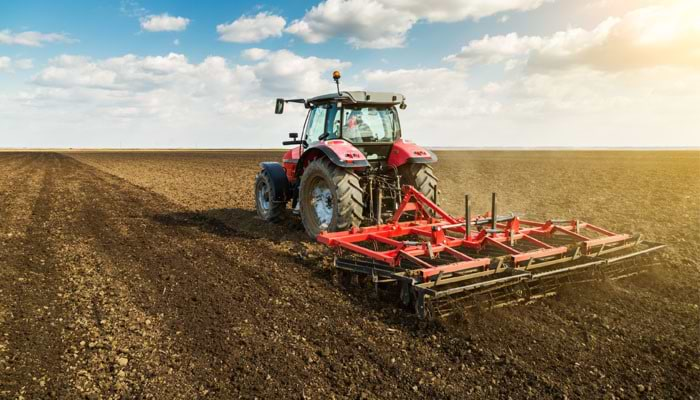
The UK will leave the EU's Common Agricultural Policy as a result of Brexit - which means British farmers will no longer be protected by European legislation and funding. The move has been described as the "biggest funding shake-up in decades", as the payments available through CAP are being wound down.
The new Agriculture Bill 2019-21, currently being finalised by the British government, will now provide the legislation behind agricultural support schemes, enabling the introduction of new approaches to land management and farm payments. It will also encompass wider measures, such as the revised operation of agricultural markets and improving fairness in the agriculture supply chain.

© oticki / Shutterstock.com
What support do farmers currently receive?
The EU’s Common Agricultural Policy is a vast subsidy system, which began in the 1960s. It enabled UK farmers to receive around £3.5 billion in funding in total each year. More than 80% of CAP funding relates to direct payments, based on the size of each farm.
Since the beginning of the 21st century, the basic payments were allocated according to the amount of land the farmers cultivated. The rest of the budget pays for environmental and rural farm management schemes. Now the UK has left the EU, these payments will gradually be reduced. It's not just the payments that are important to UK farmers. It's crucial that the government gets the figures correct when it comes to trade deals, as the EU market is the key for agriculture in many parts of Britain.
For example, in Yorkshire, around 40% of farmers' produce is currently exported to Europe, so they are anxious that any trade deal is the right one. Leaving the EU with a no-deal Brexit was the one option no-one in the agriculture industry wanted.
The total agricultural area currently receiving EU support is 9.34 million hectares, which equates to 23.07 million acres. Around 36% of the agricultural land is used specifically for arable farming.
The biggest agricultural product produced in the UK is milk. Around 13.8 million tonnes of milk are produced every year. This is followed by wheat (13.2 million tonnes per annum) and chicken (1.3 million tonnes).
Also in the top 10 agricultural products produced in Britain are beef, pork, lamb, potatoes, rapeseed, eggs and sugar beet.
What will be changed by Brexit?
Ministers have announced they will test a system of environmentally-based pay-outs to farms, instead of the money they have been used to receiving as a basic payment from the EU. The Agriculture Bill 2019-21 is aimed at providing a legislative framework to make the transition easier for farmers, ensuring they don't lose money.
It had its first reading on 16th January and second reading on 3rd February 2020. It completed its House of Commons stages on 13th May and began its Lords Committee consideration on 7th July. The Bill proposes a new farm support framework.
This doesn't apply to farmers immediately, despite EU exit day already having passed. The system of direct farm payments will continue throughout 2020 across the UK. They are covered by the Direct Payments to Farmers Legislative Continuity (2019-20) Bill, ensuring the vital funding will continue much the same in the short-term, as it did under the previous CAP scheme.
The government has guaranteed that farmers will receive their usual annual budget in every year of this Parliament. The changes planned through the Agriculture Bill are looking ahead to the future.
How will farmers be supported post-Brexit?
The current transitional period began on Friday 31st January - when the UK left the EU. After this, it is planned that the new Agriculture Bill will provide a range of powers to introduce a new approach to land management and farm payments.
Farmers in England will be paid to produce "public goods", receiving funding for improving animal welfare and making environmental improvements, notably by increasing soil protection. The Bill also includes wider measures, aimed at improving fairness in the agricultural supply chain and in the operation of agricultural markets.
Phasing out the old payments system and bringing in the new will begin in 2021, although it will take seven years until the changeover is complete. Prior to the no-deal Brexit taking place, the agricultural charity, Sustain, had expressed "profound concerns" about this scenario.
As the new legislation is finalised, the organisation has asked the government for further assurances with regard to animal welfare, food standards, farming practices, antibiotic stewardship and the wellbeing of farmers and consumers.





